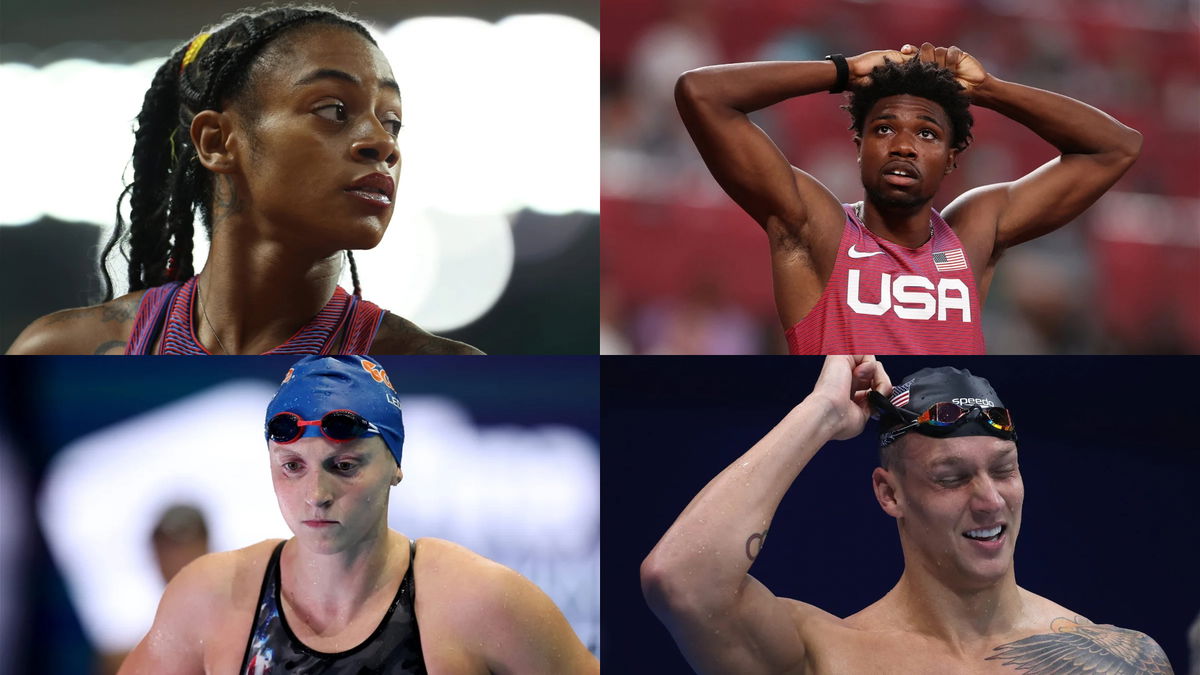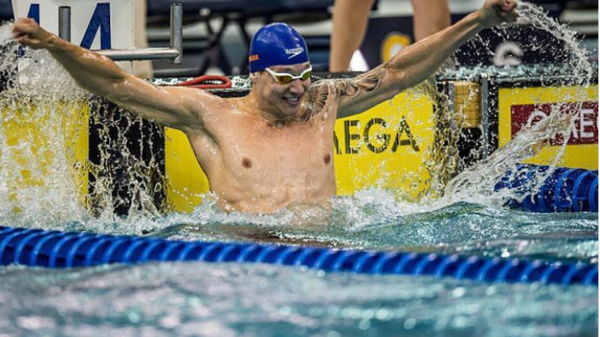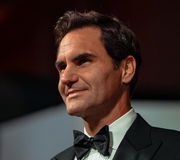
Imago
Image credits: Imago

Imago
Image credits: Imago
The ongoing debate regarding prize money has resurfaced. Travis Miller disclosed the prize allocation for the U.S. Olympic Trials, in track and field set to commence on June 21st, just a couple of days away. According to the announcement, cash rewards will be given to the eight participants. The champion will be awarded $11,000, the runner-up will receive $8,800 while third place will earn $6,600. Fourth place will get $4,400, fifth place $3,400, sixth place $2,200 and both seventh and eighth places will each receive $1,100 respectively.
Watch What’s Trending Now!
However, track and field athletes participating in the Olympic Trials, such as Noah Lyles, Sha’Carri Richardson, Gabby Thomas, Christian Coleman, Kenneth Bednarek, and others, will receive relatively receive low prize money for such a significant event. It has always been a bone of contention. Given that these trials are crucial for selecting athletes for the Paris Olympics, many believe they should offer more substantial rewards. This has sparked controversy, with fans expressing their anger and questioning, “How much money the trials make from these same athletes?” They are directing their frustration at the governing body of USA Track and Field.
U.S. Olympic Trials prize money breakdown #TrackFieldTrials24 pic.twitter.com/2uWJjnoFcv
— Travis Miller (@travismillerx13) June 18, 2024
ADVERTISEMENT
While track and field athletes do receive some prize money, the swimming Olympic Trials, which started on June 15 and will conclude just in a few days, June 23, offer little to no prize money at all. Swimmers such as Katie Ledecky, Caeleb Dressel, Bryan Murphy, Simone Manuel, and many others prioritize qualifying for the Olympics over chasing rewards. Their main motivation lies in the aspiration to represent their country on a platform with the prestige of participation holding more significance than any potential monetary gains.
Successful swimmers who excel and earn a place on the Olympic team have the opportunity to receive backing and sponsorships from different sources, such as USA Swimming, corporate sponsors, and endorsements. Achieving success at the Olympics or other significant global competitions can also boost their income potential through prize money and bonuses provided by their federations, the International Swimming Federation (FINA), and additional sponsors.
Let’s take an example. In the 2019 FINA World Championships held in South Korea, FINA set aside an amount of $2.4 million, as prize money for athletes. Winning a gold medal at the Championships entitles an athlete to $20,000 along with a $30,000 bonus for setting a world record. This incentivized system has ruled the roost in swimming for quite a while now. While these amounts may appear attractive, the distribution tends to benefit performing athletes who excel in events. For example, in 2019, Caeleb Dressel won a sum of $110,000 in prize winnings. Similarly, top male and female swimmers each take home $150,000 at the FINA World Cup. Notably, in 2018, Vladimir Morozov and Sarah Sjostrom collectively earned over $250,000 each throughout their participation in the World Cup series.
ADVERTISEMENT

ADVERTISEMENT
In the United States, the Athlete Partnership Agreement (APA) guarantees a base salary of around $40,000 for swimmers who achieve a 16 global ranking in an Olympic event. However, the level of support provided to athletes varies from one country to another. Some nations offer stipends to assist with expenses such as training, equipment, and travel costs. These amounts often fall short of fully meeting the needs of athletes. For example, in countries, elite athletes receive a few hundred dollars per month, highlighting the financial struggles that competitive swimmers face on a global scale.
Overall, financial support structures within swimming, including prize money, partnership agreements, and national stipends, highlight the complexities of sustaining a career in the sport. While initiatives like the APA in the United States offer stability to a select group of elite athletes, the disparity in support across nations underscores the need for broader systemic changes to ensure athletes can pursue their sporting dreams without financial hardship. But are you wondering how track and field athletes earn money?
ADVERTISEMENT
Rethinking track and field prize money- How does Noah Lyles fit in?
Currently, track and field athletes primarily generate income through competitions like the Diamond League, Continental Tour, and World Championships. However, World Athletics recently announced a significant boost in prize money, with Olympic gold medalists in track and field events set to receive $50,000 in Paris, while relay teams will split the sum. This increase is particularly beneficial for individual event winners, as the previous prize structures, such as those in the Diamond League, offer comparatively lower rewards.
For instance, the Diamond League’s prize money for series meets ranges from $10,000 for first place to $500 for eighth place, with higher amounts allocated for the final. In the Diamond League Final, winners can earn up to $30,000, incentivizing top performance in these prestigious events. However, winning all 10 Gold level events on the Continental Tour would earn an athlete just $50,000 in prize money.
ADVERTISEMENT

ADVERTISEMENT
However, last year, at the World Athletics Championships in 2023, individual competition winners received USD 70,000, with decreasing amounts for subsequent places down to USD 5,000 for eighth place. For relay races, winning teams earned USD 80,000, with decreasing amounts for lower placings down to USD 4,000 for eighth place. Now let’s compare the income of 2 pro players of these sports.
Top Stories
Greg Biffle’s $4M Worth Prized Possession Still Without a Buyer Leaves NASCAR Fans Heartbroken

LIV Golf Braces for Another Possible Exit in Wake of Brooks Koepka Departure

Sean Payton Announces Retirement Plans as Broncos HC Demands Improvement From Bo Nix & Co. Before Playoffs

Biff Poggi All But Confirms Bryce Underwood’s Michigan Future After Announcing His Own Departure

Roger Federer Draws Criticism from Swiss Government Chief for Tourism Boom in Country

Amanda Balionis Confirms New Relationship Ending Months of Rumors

In World Championships, Noah Lyles won all his events in 2023, earning $160,000—a good payout for a week’s work. However, even if he maximizes all his earnings as a champion in a season, he’d only make $380,000. This is much less than the minimum salaries in the NFL and MLB, and far below NBA earnings. In fact, the average professional swimmer earns less than 1% of what basketball or football players make. Let’s look at the 2 most famous and successful athletes Katie Ledecky and Noah Lyles, respectively.
Katie Ledecky, ranked among the top 5 swimmers globally, boasts an estimated net worth of $5 million. She represents brands like Athleta, Adidas, and Tyr, among others, and earns around $100,000 annually. Meanwhile, Noah Lyles has a net worth exceeding $2 million and represents brands such as Nike, Adidas, Coca-Cola, Visa, and Intel.
ADVERTISEMENT
While USATF offers track and field athletes prize money for the Olympic Trials, swimmers in the U.S. Olympic trials don’t receive such rewards. However, swimmers have alternative avenues through swimming as they can earn through sponsorships and endorsements, showcasing the varied financial dynamics within Olympic sports.
ADVERTISEMENT
ADVERTISEMENT
ADVERTISEMENT

